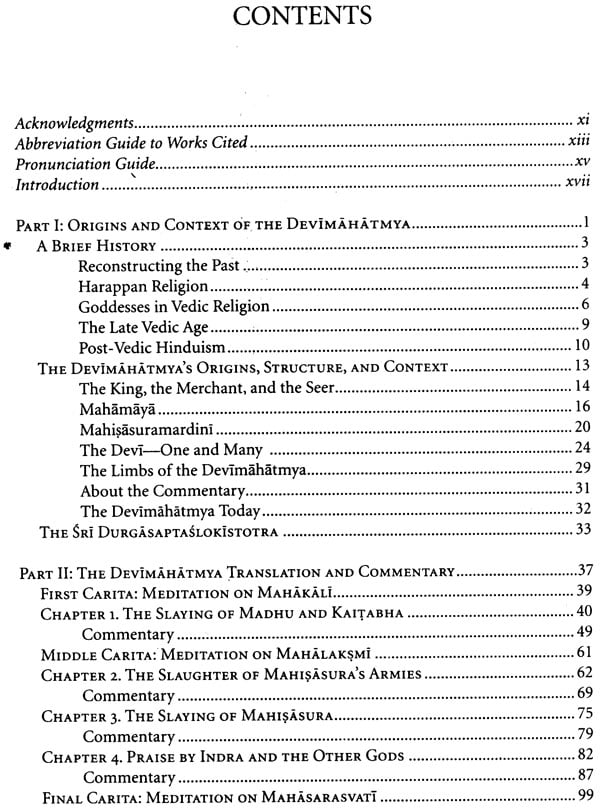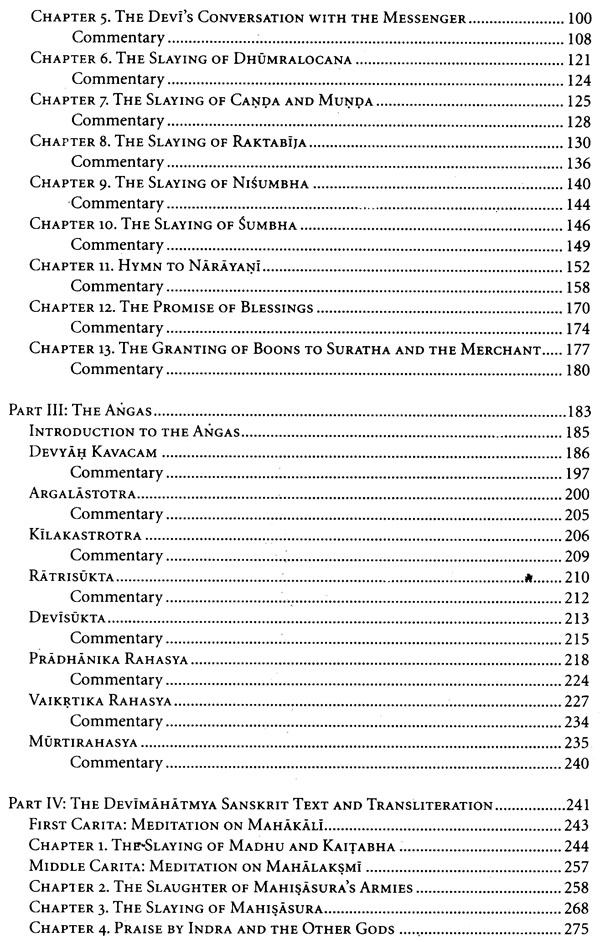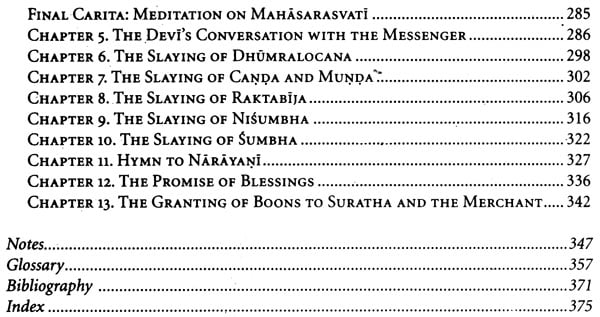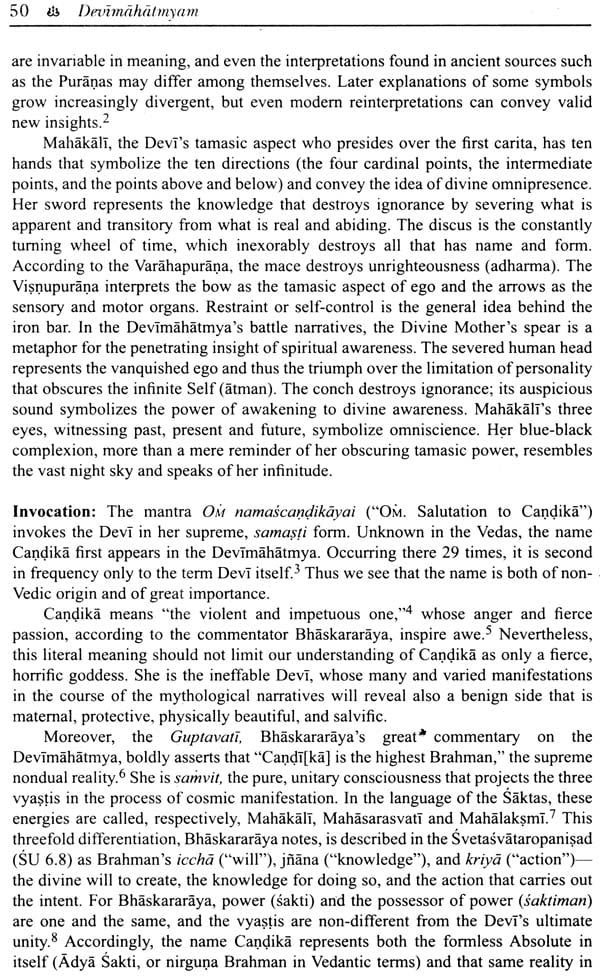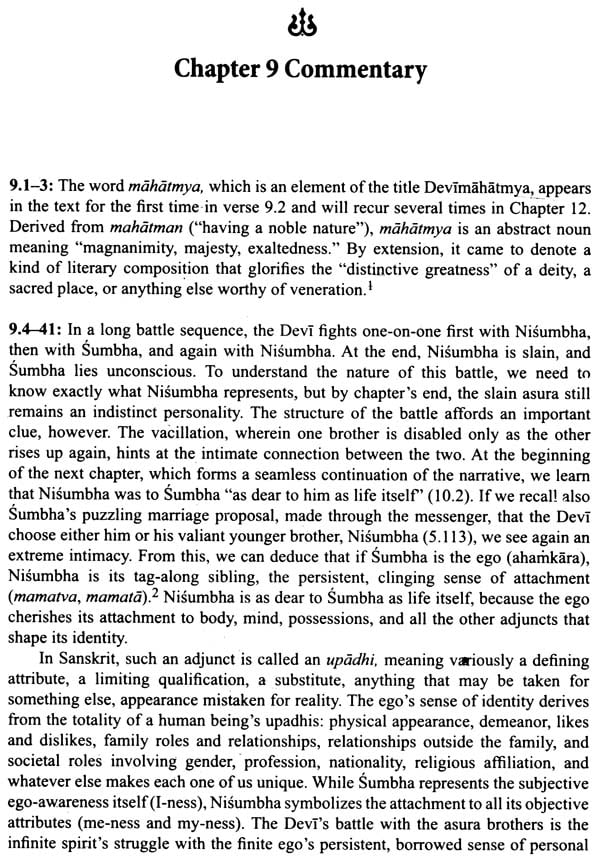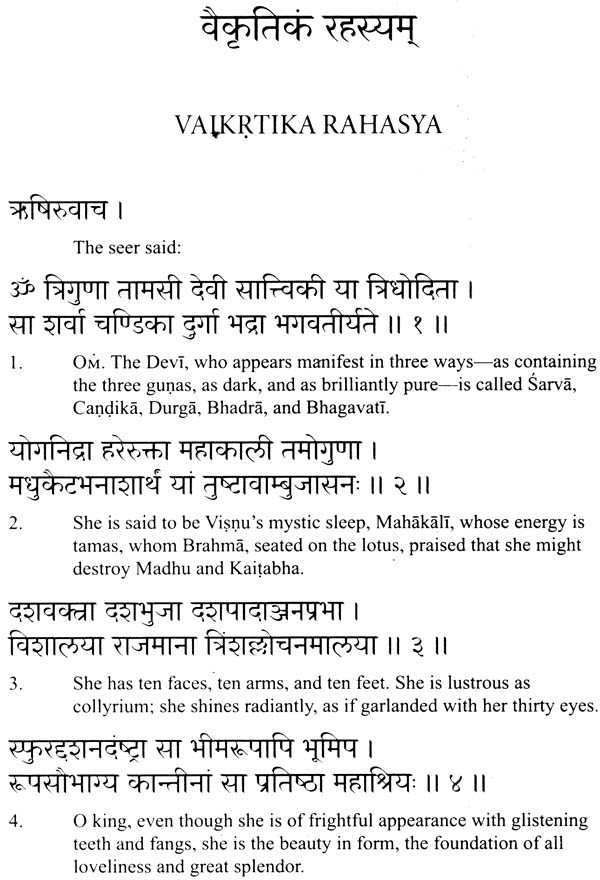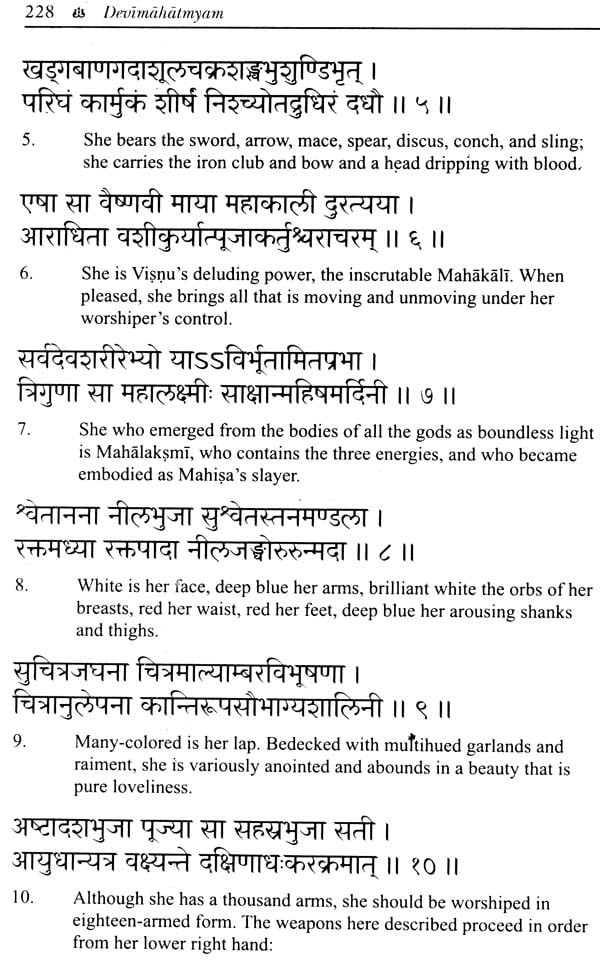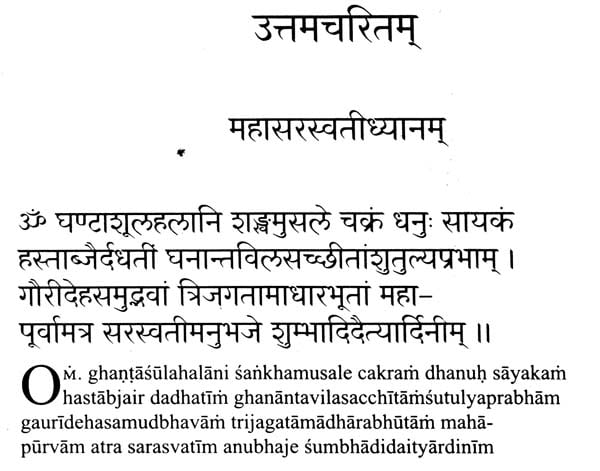
Devimahatmyam - In Praise of the Goddess
Book Specification
| Item Code: | NAQ576 |
| Author: | Devadatta Kali |
| Publisher: | MOTILAL BANARSIDASS PUBLISHERS PVT. LTD. |
| Language: | Sanskrit with English Transliteration |
| Edition: | 2010 |
| ISBN: | 9788120829312 |
| Pages: | 398 |
| Cover: | HARDCOVER |
| Other Details | 8.50 X 5.50 inch |
| Weight | 700 gm |
Book Description
This spiritual classic, written about 16 centuries ago by author or authors unknown, remains the central text for worshippers of the Hindu Devi, the Divine Mother. The Devimahatmya addresses the perennial questions of the nature of the universe, human-kind, and divinity. Written in the form of a narrative of a dispossessed king, a merchant betrayed by the family he loves, and a seer, it presents a trilogy of myths concerning the all-powerful Divine Mother, Durga, and the fierce battles she wages against throngs of demonic foes. These allegories rep-resent our all-too-human impulses toward power, possessions, and pleasure.
DEVADATTA KALI (DAVID NELSON) is an initiate of Swami Prabhavananda, who was also the spiritual guru of Christopher Isherwood and Aldous Huxley. He currently serves on a panel of editors for Vedanta Press in connection with a forthcoming annotated edition of the Prabhavananda-Isherwood translation of the Bhagavad-Gita. Additionally, he lectures at temples, ashrams, schools, and religious conferences throughout California and is committed to social service as a volunteer helping the homeless and people with HIV / AIDS.
Fifteen or more centuries ago an unknown author or authors in northwest India wove together the diverse threads of already ancient memory and created a dazzling verbal tapestry that remains even today the central text on the Hindu Goddess. Called the Devimahatmya ("The Glory of the Goddess"), this poem of seven hundred verses is recited daily in temples and widely disseminated in the original Sanskrit and in vernacular translations, Part myth and part philosophy, part narrative and part hymn, it is a spiritual classic that addresses the perennial questions of our existence: What is the nature of the universe, of humankind, of divinity? How are they related? How do we live in a world torn between good and evil? And how do we find lasting satisfaction and inner peace?
Cast as the narrative of a dispossessed king, a merchant betrayed by the family he loves, and a sage whose instruction leads beyond existential suffering, the Devimahatmya teaches through a trilogy of myths. The sage's three tales are allegories of outer and inner experience, symbolized by the fierce battles the all- powerful Devi wages against throngs of demonic foes. Her adversaries represent the all too human impulses arising from the pursuit of power, possessions, and pleasure, and from illusions of self-importance, Like the battlefield of the Bhagavadgita, the Devimahatmya's killing grounds represent the field of human consciousness on which the drama of individual lives plays out in jQy and sorrow, in wisdom and folly, The Devi, personified as one supreme Goddess and many goddesses, confronts the demons of ego and dispels our mistaken idea of who we are, for-paradoxically--it is she who creates the misunderstanding in the first place and she alone who awakens us to' our true being.
Our ancient ancestors, whose beliefs constitute this text, found enchantment in nature's bounty, faced terror in its destructive force, and revered both aspects of their experience as manifestations of the Great Mother, As relevant today as ever, the Devimahatmaya has the power to' reawaken us to' a sense of wonder at the surrounding universe through a dazzling, integrating, and ultimately liberating vision of reality. This translation is the fourth by a native English speaker but the first ever to' combine Western scholarship with an insider's perspective, based on my 37 years of spiritual practice within the- Hindu tradition, I attempt to' convey, in modern English, a dignity and eloquence befitting a sacred text and to' allow you easy access to' its inspiration. I have included the Sanskrit original in Part IV in order to' fulfill the needs of those who want to' study the Devlmahatmya in depth.
**Contents and Sample Pages**
